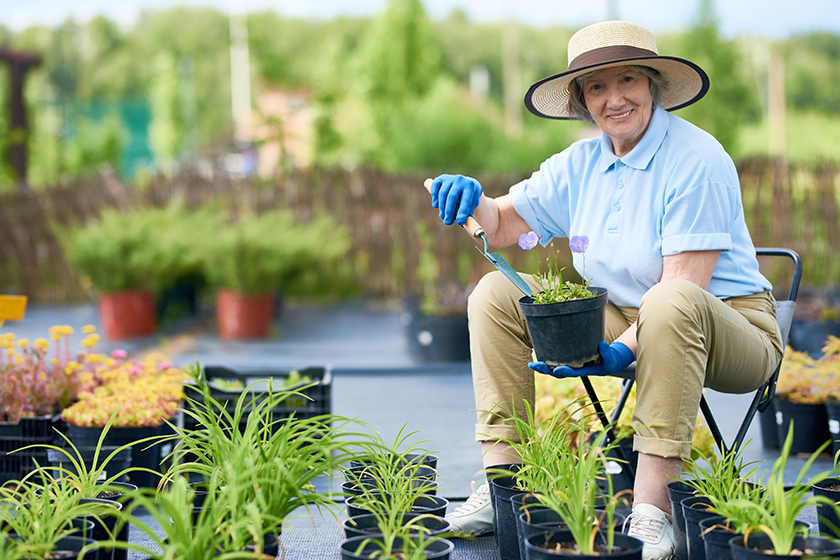Gardening can be a therapeutic and rewarding activity, but for those with limited mobility, it may present challenges. Fortunately, senior care services are designed to ensure that residents can still enjoy the benefits of gardening in a safe and accessible way. By tailoring environments and providing support, these care settings make it possible for individuals with physical limitations to participate in gardening activities without the worry of strain or injury.
Adapting Gardens for Accessibility
A key way senior care enhances gardening for residents with limited mobility is by making gardens more accessible. Raised garden beds, which are built higher off the ground, allow residents to tend to plants while seated or standing, reducing the need to bend over or kneel. Wider pathways ensure that those using wheelchairs or walkers can move freely and comfortably through the garden spaces. Tools designed for easy gripping and lightweight materials also help those with arthritis or limited strength to garden with ease.
These simple modifications enable residents to reconnect with nature, nurture plants, and enjoy the sensory and emotional benefits of gardening, all while reducing physical strain.
Safety Considerations in Gardening
In addition to accessibility, safety is a top priority. Senior care providers understand that certain physical limitations can make typical gardening tasks more hazardous, such as reaching for tools or bending to plant seeds. To address these risks, they offer assistance with tasks that might otherwise pose a risk of falls or injury.
For example, residents may receive help with tasks like transporting soil or carrying heavy pots, allowing them to focus on the lighter, more enjoyable parts of gardening, like watering plants or harvesting vegetables. This support makes the experience stress-free and safe, ensuring that all residents can engage at their own comfort level.
The Therapeutic Benefits of Gardening
Gardening offers numerous mental and physical health benefits. It provides a sense of accomplishment and purpose, which is particularly important for residents who may feel limited by their physical abilities. The act of nurturing plants promotes relaxation, reduces anxiety, and can even help with cognitive stimulation. Additionally, light physical activity involved in gardening, such as gentle stretching or watering plants, helps residents stay active in a way that suits their abilities.
With senior care’s support, gardening becomes not only a safe activity but a fulfilling one, fostering a sense of connection with nature and others. Many communities organize group gardening projects, which encourage social interaction and teamwork, further enriching the overall experience.
Empowering Accessible, Joyful Gardening
Senior care ensures that gardening remains an accessible and safe activity for all residents, regardless of mobility challenges. Through thoughtful adjustments and compassionate assistance, residents can continue to enjoy the calming and therapeutic effects of working with plants. Whether it’s tending to flowers or growing vegetables, gardening can still be a part of daily life, filled with moments of joy and satisfaction.
Our care team is here to help residents continue engaging in the activities they love while prioritizing their well-being. If you or your loved one could benefit from a supportive environment that makes everyday hobbies more accessible and enjoyable, reach out today to learn how we can assist. We’re committed to creating an atmosphere where everyone can thrive, no matter their abilities.







